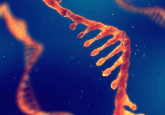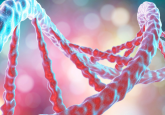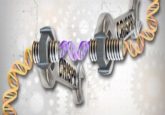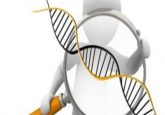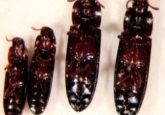Extra CRISPR gene editing

CRISPR/Cas systems from certain bacterial species are unable to cleave DNA in mammalian cells, but researchers have now overcome this limitation with a new method.

The CRISPR/Cas9 system has greatly facilitated gene editing in eukaryotic organisms, but there is a continuing need to improve its targeting specificity in order to eliminate off-target cleavage of sequences differing by only one nucleotide from the target sequence. In addition, when there are identical copies of a target sequence in the genome, it has not been possible to target only one of those sequences at a particular genomic location.
To tackle these problems, researchers have been studying CRISPR/Cas systems from bacterial species in addition to Streptococcus pyogenes, which is used for the canonical system, in the hopes of discovering Cas nucleases with greater specificity. Unfortunately, many of these alternative CRISPR/Cas systems are unable to efficiently cleave target sequences in mammalian cells even though they work on naked DNA or in bacteria. Now, researchers led by Fuqiang Chen at MilliporeSigma have devised a method that enables Cas nucleases to specifically cleave DNA in mammalian cells when they were previously unable to do so on their own.
The team had been studying a Francisella novicida Cas9 nuclease (FnCas9) with intriguing new properties. Previous studies suggested that it was unable to cut DNA in mammalian cells because the chromatin structure hindered targeting and cleavage. Chen’s team reasoned that a catalytically dead S. pyogenes Cas9 (SpdCas9) binding near a FnCas9 target site might open up the chromatin and allow FnCas9 binding and cleavage, which is exactly what they observed.
The team applied their proxy-CRISPR method to several other CRISPR/Cas systems that were inactive in mammalian cells. They also demonstrated that they could specifically target one of two identical target sites in the genome by using SpdCas9 that bound sites proximal to the desired target site, indicating that proxy-CRISPR will allow for even greater precision in gene editing by the CRISPR/Cas system.
